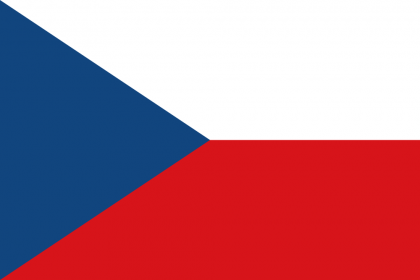Czech Republic Attempting to Rein in Gambling
People in the Czech Republic like to gamble. A lot, apparently. According to a piece by Radio Prague, the proliferation of gambling has become a big enough problem that the country’s government recently put forth a proposal designed to reduce the opportunities for residents to wager. Opponents of such measures view them as inherently unfair and doubt their potential effectiveness.
According to the article on radio.cz, the saying that land-based gambling is widespread in the Czech Republic is an understatement. In 2014, there were an estimated 5,400 establishments that offered some sort of gambling – pubs with slot machines, for example – and an almost 570 casinos. At its peak in 2011, the number of gambling machines in the Czech Republic was 102,000. It has since declined significantly, but at the end of last year was still 67,000.

King’s Casino in Prague
I suppose am inclined to believe these figures, but at the same time, they are so astounding that I wouldn’t be surprised to find out that an extra zero was tacked on to each number. 570 casinos? I mean, that can’t be real, can it? I would have assumed that a “casino” was being defined as anywhere with a gambling machine, such as a convenience store with a couple video poker machines by the restroom, but the figure for gaming establishments is separate from casinos, so that 570 number might be right. The Czech Republic is roughly the size of South Carolina. To have nearly 600 casinos within a six hour drive of my house is unimaginable, and I’m just thinking about the number of venues relative to the size of the state, not even touching on the fact that South Carolina is as Conservative as Victorian-era swimwear.
No wonder the government wants to crack down on gambling. Last week, the Cabinet adopted a number of proposals that would remove gambling machines from restaurants and pubs, outlaw 24-hour gaming bars (venues would have to be closed from 3:00am to 10:00am, though licensed casinos can stay open all night), and forced breaks for gamblers.
Organizations that wanted tighter gambling restrictions have given the proposals a “cautious welcome,” though Radio Prague reports that some anti-gambling legislators accused finance minister Andrej Babiš of giving in too much to pro-gambling groups.
David Ondráčka, director of the Czech branch of Transparency International, a non-governmental political corruption watchdog, thinks the proposals are solid, saying:
Today it seems that the government reached a useful compromise over the depth of the legislation and we as NGOs which called for comprehensive legislation are happy about that decision. Needless to say there will still be a further legislative process and we will see how parliament will go through that. My impression is that this proposal might really set up a standard regulatory framework for lotteries and casinos in the country and the Czech Republic will no longer be exceptional in the numbers of addicted people and the social costs connected to that will go down.
He added, though, that the goal of harsher gambling restrictions should not simply for the government to get its hand deeper into the cookie jar and extract more taxes out of the industry, but rather to help reduce gambling problems around the country. “We would love to see that the government logic is that we should not collect as much taxes as possible from gambling but that we should limit it to a reasonable scope. If this is going to happen, then the slogan that the Czech Republic works as the casino of Europe will no longer be the case and I definitely think that it will help the country and its development,” he said.
As one might expect, the country’s gaming association, SPELOS, is not thrilled at all with the proposals, arguing that the way that taxation would be setup is unfair. Tax rates would vary based on the type of gambling. For example, slot machine revenues would be taxed at 35 percent, lottery and bingo games would be taxed at 30 percent, and sports betting would be subject to a 25 percent tax.
Interestingly, SPELOS also says that the stricter the government gets with land-based gambling, the more Czechs will migrate over to internet gambling sites. From the Radio Prague piece, while gambling sites are not permitted to operate in the country, they still are, but with the advantage of being based elsewhere and not paying Czech taxes. It is always possible that the government could decide to regulate online gambling and issue licenses to internet sites, but those sites might not do deal with the extra taxes to which they would be subject.
Andrej Čírtek of the Gaming Industry Union said explained that younger people live their lives online, anyway, so further land-based gambling restrictions won’t be a problem for them:
This package of laws, on the one hand raises the repression, I can say, in the form of regulation and taxation against street gambling. But on the other hand it takes a more liberal approach to online gambling. So as a consequence in the end this package of laws against gambling is not about to lower the level of gambling in the Czech Republic. It is about moving gambling from one environment to another.



















COMMENTS